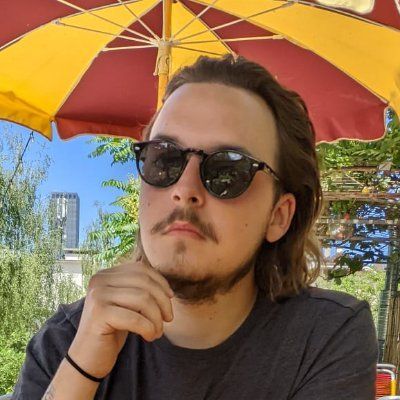MentorCruise is an impressive mentor marketplace which has grown to 20,000 users. I interviewed the Swiss bootstrapper, Dominic, who is the creator of MentorCruise about how he's helping to connect mentors with people wanting to get mentored. We discussed why he set it up in the first place, the power of SEO and why two-sided marketplaces don't have to be as hard as some people make them out to be.
Can you tell us what you’ve achieved with MentorCruise?
We have over 2,500 mentors available and over 20,000 registered users. Every month we’re matching over 500 new mentors and mentees with each other. Over the past 12 months, we’ve paid out $1.5M to mentors all around the world and have had one million visitors come to our website.

Why did you create MentorCruise?
I had a non-traditional path into tech (read my No CS Degree interview about learning to code 😉 ) and so I missed out on a lot of mentorships that my peers in big tech or university were able to profit from.
I realized the power of mentorship when I got assigned a mentor in an online course. That mentor helped me over a lot of hurdles, introduced me to the right people, and ended up indirectly getting me a job I would not have been able to get without him.
The downside is that you lose mentors like this quickly, usually, after the course ends, so the motivation to build MentorCruise has always been driven to create a resource where you can find powerful mentors with the same ease and without small print.
Did you focus on getting the mentors first or the mentees?
It makes sense in a marketplace to focus on one side of the equation, to find the side first that’ll attract and fill up the counterpart. For us, this was mentors.
Imagine – there are a lot of people that would like a mentor in their lives. And it’s fairly easy to find mentees if you’re open to that. Comparably it’s pretty hard to find a mentor. So we concentrated on bringing in the more sparse resource first – the mentors.
The upside of all that was that mentors are usually also well-respected industry professionals with large networks. Meaning the right mentors would bring in their own mentees, simply by sharing their profiles. This gave us that initial kickstart.
What are some of the challenges of the 2 sided marketplace? What makes them harder?
I’m not sure they are harder – but they are more capital-intensive, usually to a point where it might not be attractive to most entrepreneurs.
Marketplaces are very rarely a tech problem, so it’s not like I, as a coder, could build a tool and start to charge money for it. It’s a growth and traction problem, where you’re trying to convince two different sides of people to work with you. I’d argue it’s an easier business model to build as a non-technical or very well-connected founder. But for most people, it’s just incredibly hard to build that leverage. A tech problem is much easier to solve.
Product-wise, it’s also just often twice the effort. You need to have a toolkit for supply AND demand. For example, our mentors have a large suite of tools for billing, invoices, pricing setups, and profile creation, whereas mentees have filtering tools, wishlists, and an entirely different set of invoices and billing tools. Again, I don’t think it’s hard – just a ton of work.
Where it gets tricky is when introducing changes and building features. You need to balance both sides of the marketplace. A feature might bring a big benefit to one side but create more work for the other. A new policy might make your offer cheaper, but also decrease the earnings of your suppliers. That’s probably the hardest part.
I would also say that marketplaces have much easier things. For example, the network effects involved. While I love to focus on marketing, we don’t have to spend a lot of time or money on it. We have 2,500 mentors that help us market MentorCruise on LinkedIn, Twitter, and other communities. I don’t think SaaS businesses in our revenue range get the same amount of Word of Mouth.


